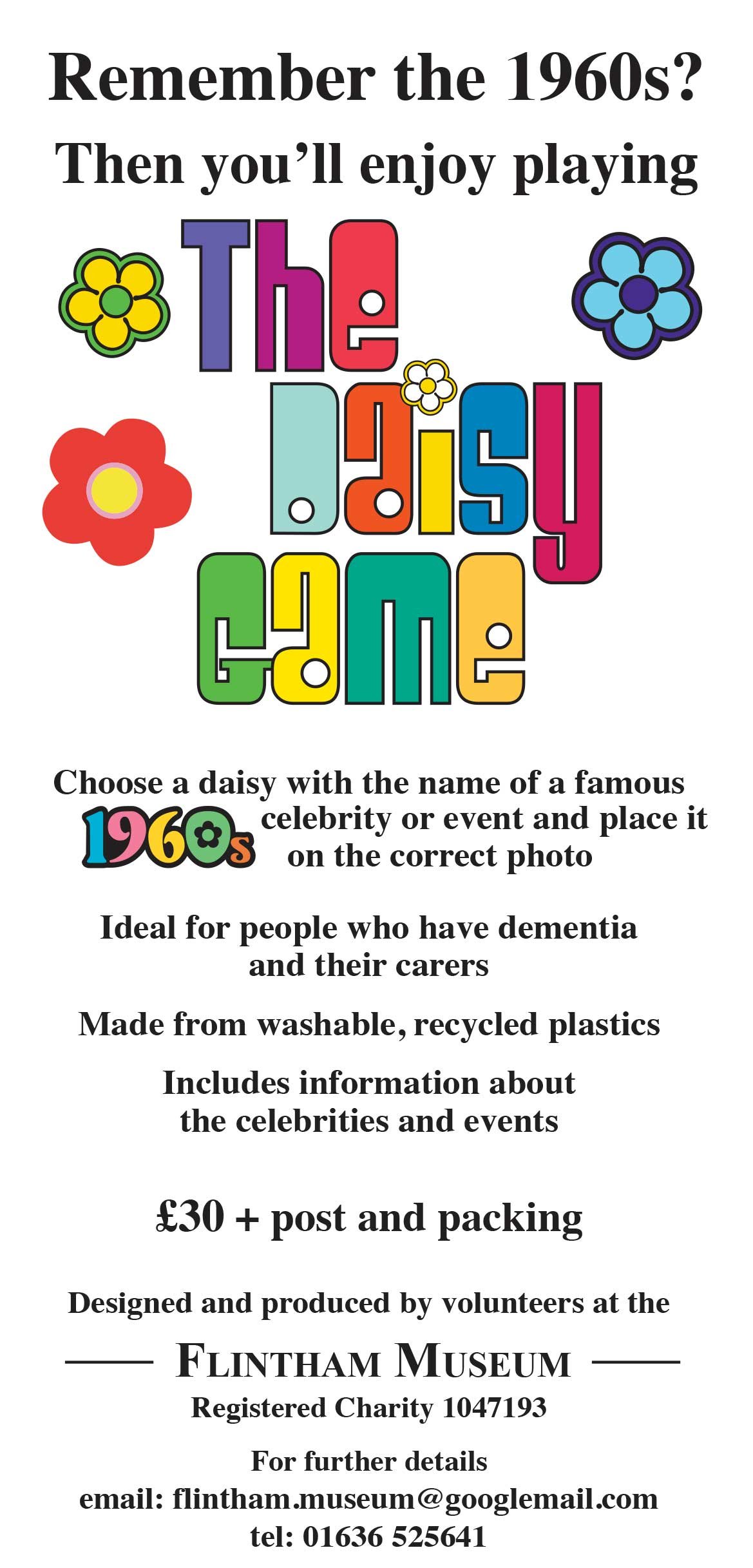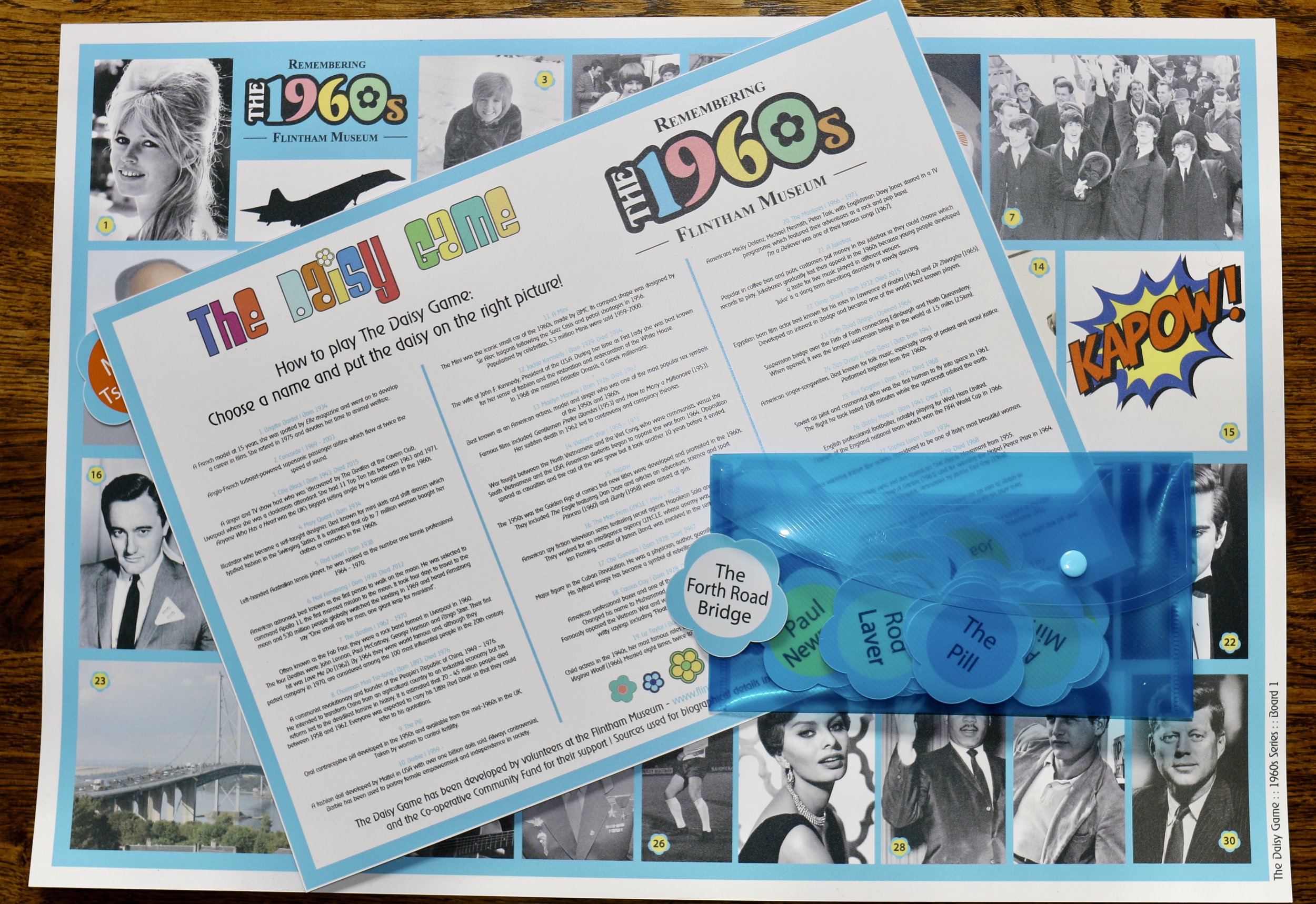The Flintham museum is really tiny, far too small to accommodate a group of school children.
However, visitors who have dementia find the museum is ideal; they enjoy visiting because they aren’t confused by corridors, staircases or lots of doors.
Flintham Museum volunteers have specialised in providing enjoyable sessions for people with dementia and their carers since 1999, either in the museum or more recently at memory cafes and nursing homes.
A few years ago we noticed that our target market was becoming younger and that we would have to rethink our sessions to appeal to those born after WWII. So, we decided to concentrate on the 1960s for all our dementia sessions.
We obtained a grant from Sandford Cascade to research the decade and began to buy suitable objects from charity shops that we could take out to social groups and care homes.
The museum collection has some artefacts from the 1960s, but the majority of the collection is pre WWII.
When we had gathered lots of ideas and themes we held a 1960s evening in the village hall for local residents, only one of whom had low level dementia.
Villagers arrived appropriately dressed and enjoyed trying out a range of activities while eating pineapple and cheese on sticks (very 1960s!).
Some of the older visitors jotted down their 1960s memories on post-it notes which were stuck onto sheets of paper. The youngsters asked questions about the decade which helped us to work out what background information nursing home staff might need.
One of the activities which proved popular with all age groups was putting daisy shaped name tags onto photos of famous 1960s people.
The game quickly became known as the Daisy Game and we took home made versions to memory cafes where it sparked loads of memories, conversations and laughter.
We began to wonder if it was worth turning the Daisy Game into a marketable product and applied to the Co-op Community Fund for financial assistance.
Over a year, Co-op customers from two Nottinghamshire branches raised sufficient money to cover the costs of researching free-to-use images, professional design work and the production of 100 games.
After it was produced we went back to the Co-op branches to show customers how their money had been used.
The Daisy Game is made from recycled plastics and is fully washable. It has an outer case, a board with 30 photographs of 1960s people or events, 30 daisy-shaped tokens, each with a name, plus six blank daisies, and a board with sufficient background information about each person or event to start a conversation. It costs £30 + post & packing if appropriate.








